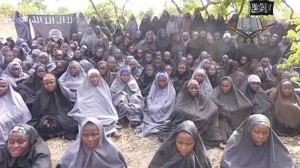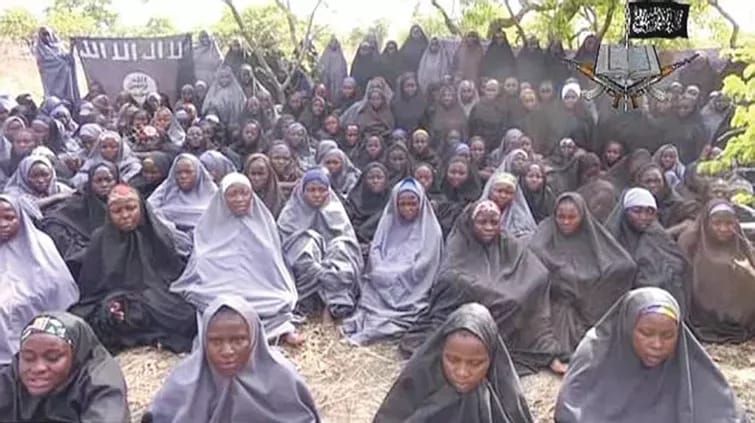When Boko Haram fighters decided to release some of the 200 Chibok schoolgirls kidnapped two-and-a-half years ago in northeast Nigeria, Asabe Goni did not think that she would be among the girls allowed to go home.

During their time in captivity the girls were encouraged to convert to Islam and to marry their kidnappers, with some whipped for not doing so, but Goni said otherwise they were treated well and fed well until supplies recently ran short.
Hungry and ill, the 22-year-old did not even have the energy to stand up in October when the fighters said that any girls who wanted to be released should line up. She sat and watched as other girls scrambled to get into line.
“I was surprised when they announced that my name was on the list,” Goni told the Thomson Reuters Foundation. “It was a miracle,” she said, while expressing regret that she had to leave behind her cousin who was also abducted.
“I never knew that I would return [home],” Goni said. “I had given up hope of ever going home.”
A group of 21 girls was released two months ago after Switzerland and the International Red Cross brokered a deal with Boko Haram. They have been held since in a secret location in the capital Abuja for debriefing by the Nigerian government.
But the girls have been taken back to the Chibok area in Borno state to spend Christmas with their families, returning home for the first time since being seized from their school in April 2014.
“I was very happy when they said I should go home,” Goni said in an interview in her family’s home in the northern city of Yola, surrounded by her father, stepmother, five siblings and several neighbours.
The kidnapping of more than 200 schoolgirls from Chibok in April 2014 hit international headlines and prompted global figures, including US First Lady Michelle Obama and a list of celebrities, to support a campaign #BringBackOurGirls.
None of the girls were seen again until May this year when one of the students, Amina Ali, was found in a forest with a baby and a man claiming to be her husband.
Her discovery prompted hopes that the girls were alive and Nigerian President Muhammadu Buhari pledged to ensure the release of the remaining girls in captivity.
‘I was in great pain’
Recalling the abduction, Goni said the girls, which included her younger cousin Margaret with whom she had lived since she was a child, trekked for three days through Sambisa forest, Boko Haram’s vast woodland stronghold, before they arrived at a camp.
“I was in great pain,” she said. “Many of us didn’t stop crying until about three months after we were kidnapped.”
While the girls were not forced to convert to Islam, the fighters told them that they would all be sent home if they did so, said Goni. Neither were they forced to marry, she added.
“But the way they talked to us about it, you would be afraid not to,” she said, recalling how the girls were sometimes flogged with a whip. “That is why some were convinced to marry.”
Goni said the girls were otherwise treated well by the fighters. They were given material to sew clothes and fed three times a day until recently when food became scarce.
The girls told state officials they were not abused or raped, and all tested negative for sexually transmitted diseases, according to a confidential report based on a two-week debriefing prepared for Buhari and seen by the Thomson Reuters Foundation in November.
When Goni was released, she did not have time to say goodbye to Margaret, whom she calls her sister, or the other girls.
“Some of the other girls left behind started crying,” she said. “But the Boko Haram men consoled them, telling them that their turn to go home would come one day.”
Nigerian authorities say they are involved in negotiations aimed at securing the release of more of the girls, while the army has captured a key Boko Haram camp in Sambisa forest.
About 2,000 girls and boys have been abducted by Boko Haram since 2014, with many used as sex slaves, fighters and even suicide bombers, according to Amnesty International.

